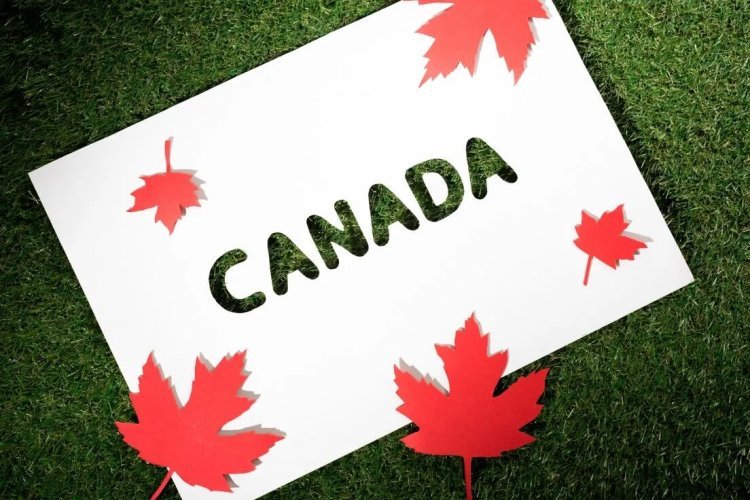Navigating the Waters: Understanding Processing Times for Canada Spousal Sponsorship Applications

Introduction:
Canada's spousal sponsorship program is a beacon of hope for many couples seeking to reunite and build a life together in this beautiful country. However, the journey towards spousal sponsorship is often accompanied by a significant amount of paperwork, anticipation, and most importantly, patience. One crucial aspect of this process that applicants often seek clarity on is the processing times. In this comprehensive guide, we delve into the intricacies of processing times for Canada spousal sponsorship applications, shedding light on what to expect and how to navigate through this phase of the journey.
Understanding Spousal Sponsorship:
Before diving into processing times, it's imperative to grasp the fundamentals of spousal sponsorship. This program allows Canadian citizens and permanent residents to sponsor their spouse or partner for Canadian permanent residency. The goal is to facilitate family reunification and enable couples to build their lives together within the borders of Canada. However, this journey involves meticulous documentation, adherence to immigration laws, and a thorough understanding of the application process.
Factors Influencing Processing Times:
Processing times for spousal sponsorship applications can vary significantly based on several factors. Understanding these factors can help applicants set realistic expectations and plan their timelines accordingly.
- Application Stream: There are two main streams for spousal sponsorship applications: inland and overseas. Inland applications are submitted when the sponsored spouse is already in Canada, while overseas applications are filed when the sponsored spouse is residing outside Canada. Generally, inland applications tend to have shorter processing times compared to overseas applications.
- Completeness of Application: The completeness of the application plays a pivotal role in processing times. Incomplete or inaccurate applications may lead to delays as immigration authorities require additional information or documentation to process the case effectively. Ensuring that all required documents are submitted accurately and promptly can expedite the processing timeline.
- Volume of Applications: The volume of applications received by Immigration, Refugees, and Citizenship Canada (IRCC) can also impact processing times. During peak seasons or when there's a surge in applications, processing times may be longer due to the increased workload on immigration officers.
- Country of Origin: The country from which the application is being processed can influence processing times. Some countries may have streamlined processes or face fewer administrative hurdles, resulting in shorter processing times, while others may experience delays due to various factors such as diplomatic relations or security concerns.
- Complexity of the Case: Certain circumstances, such as criminality, medical issues, or previous immigration violations, can add complexity to the spousal sponsorship application. Cases requiring additional scrutiny or documentation may experience longer processing times as immigration officers conduct thorough assessments to ensure admissibility.
What to Expect:
While every spousal sponsorship application is unique, there are general timelines that applicants can expect based on the factors mentioned above. As of the latest updates, processing times for spousal sponsorship applications typically range from several months to over a year. Inland applications tend to have shorter processing times, often ranging from 12 to 18 months, while overseas applications may take anywhere from 18 to 24 months or longer, depending on the country of origin and individual circumstances.
It's essential for applicants to monitor the status of their application regularly through the IRCC's online portal and respond promptly to any requests for additional information or documentation. While waiting for the application to be processed, applicants can utilize this time to prepare for their eventual move to Canada, including language proficiency tests, job search, and familiarizing themselves with Canadian culture and society.
Navigating Delays and Challenges:
Despite careful preparation and adherence to guidelines, delays and challenges may still arise during the spousal sponsorship process. It's crucial for applicants to remain patient and resilient throughout this journey. In cases of significant delays or concerns regarding the application status, applicants can reach out to IRCC or seek assistance from immigration professionals to address any issues promptly.
Additionally, staying informed about updates or changes to immigration policies and procedures can help applicants navigate potential challenges more effectively. Utilizing reliable resources such as official government websites or reputable immigration consultants can provide valuable insights and guidance throughout the process.
Conclusion:
The path to spousal sponsorship in Canada is undoubtedly a journey filled with anticipation, excitement, and occasional challenges. Understanding the nuances of processing times and factors influencing them is essential for applicants to set realistic expectations and navigate through the process effectively. By staying informed, proactive, and resilient, couples can overcome hurdles and embark on their new chapter together in the welcoming embrace of Canada.
What's Your Reaction?











![Wireless Connectivity Software Market Size, Share | Statistics [2032]](https://handyclassified.com/uploads/images/202404/image_100x75_661f3be896033.jpg)




